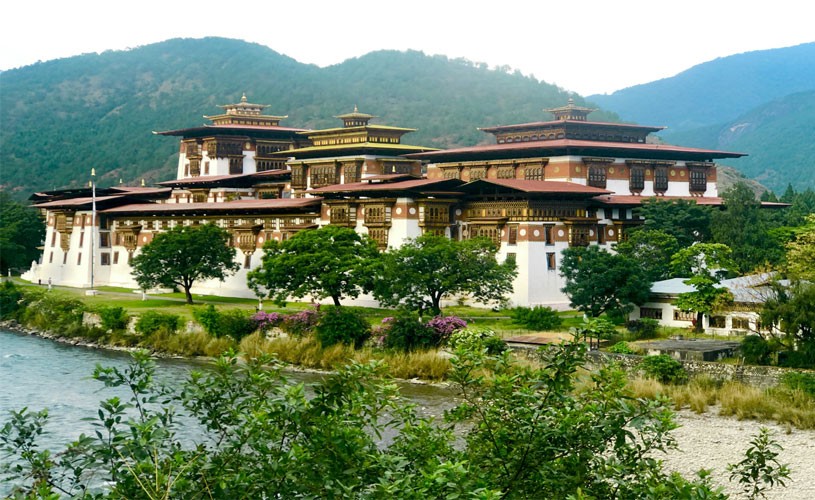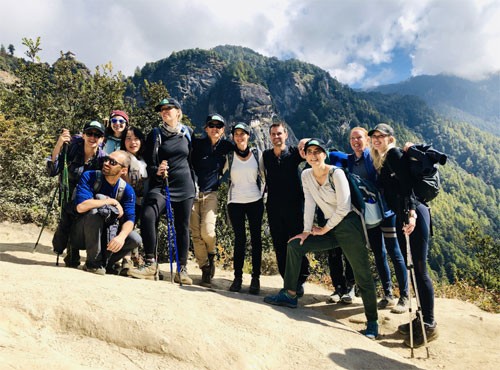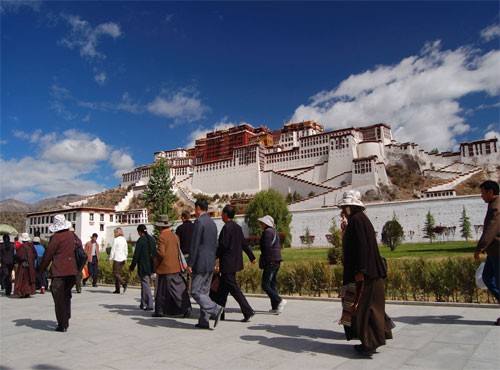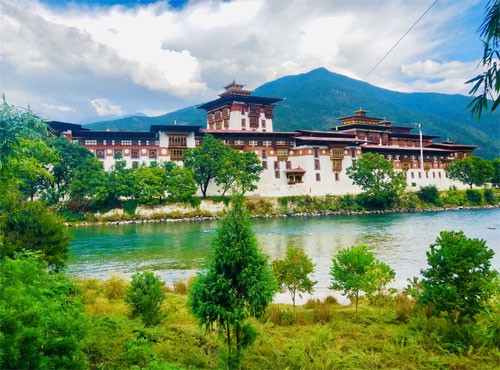Bhutan Tourist Visa Policy and Fees – 2026
Bhutan follows a “high value, low volume” tourism policy, which means the country focuses on welcoming fewer visitors while offering a meaningful, well-managed travel experience. The goal is to protect Bhutan’s culture, environment, and traditions while still allowing travelers to explore the country responsibly.
For travel in 2026, most international visitors must obtain a visa before arriving in Bhutan. You cannot apply for the visa completely on your own. The visa is arranged and processed through a licensed Bhutanese tour operator or their approved international partner.
If you plan your Bhutan trip with Adventure Club Trek, we can take care of the visa application process for you and make it simple and smooth.
Visa Process:
All foreign travelers except citizens of India, Bangladesh, and the Maldives must get visa approval before arrival. You need to send a clear color copy of your passport photo page. Your passport must be valid for at least 6 months from your travel date. Adventure Club Trek will submit your visa application through the official system after your trip booking and required payments are completed.
Visa Fee and SDF (Sustainable Development Fee):
The Bhutan government charges:
- Visa application fee: USD 40 per person
- Sustainable Development Fee (SDF): USD 100 per person per night
The SDF rate of USD 100 per night for international tourists is valid until at least August 31, 2027. This fee supports Bhutan’s environment, culture, and public services.
Visa Approval and Arrival:
After payment of the SDF and visa fee, the Bhutan authorities issue a visa clearance letter. You must carry this letter when you travel. Without visa clearance, airlines will not allow boarding. The actual visa is stamped in your passport on arrival at Paro International Airport.
Processing Time:
Visa processing normally takes about 3 working days after all documents and payments are submitted.
Regional Travelers:
Visitors from India, Bangladesh, and the Maldives can obtain an entry permit on arrival. Indian citizens may also travel using a valid Voter Identity Card.
Guide and Transport Requirement
Travelers visiting areas beyond Paro and Thimphu must travel with a licensed guide and private vehicle arranged through a tour operator such as Adventure Club Trek.
Best Time to Visit:
There is no appropriate season, which is to say that Bhutan's warm and temperate climate, never-ending festivals, and rich and abundant heritage sites provide visitors with a wide array of experiences throughout the year across the country. Bhutan has all four seasons, and the climate varies widely depending on the altitude.
Spring (March, April & May)
This is considered the most beautiful time of the year, radiant and ablaze with a spectacular array of bright colors. This is when the valleys are green with fresh vegetation, fruit trees are blossoming, and locals are naturally mirthful and cheery when visitors are most welcome. Also, you can witness the famous Paro Tsechu festival.
Autumn (September, October & November)
Autumn is lovely, with clear and crisp blue skies providing a grand view of some of the tallest unclimbed mountains in the world. It is the best time for trekking and traveling. The climate is cool and temperate. You can get lovely photography opportunities of willows shedding their golden brown leaves, the solitude of parks, and somber views of dzongs and monasteries.
Monsoon (June, July & August)
During these months, Bhutan receives more rainfall than any other region in the Himalayas. Glorious sapphire skies and warm weather are a pleasant time to spend visiting places of cultural and historical interest, though this season is not the best time for trekking. Enjoy a warm, aromatic tea while watching the rainfall from your hotel window. Or, if you possess an adventurous spirit, grab an umbrella/raincoat while it is raining and take a day tour through the town.
Winter (December, January & February)
Winter in Bhutan is sunny, calm, and agreeable. Much of the east-west highway remains snowbound during winter. It is the best time to tour the western districts of Paro, Wangdue, Punakha, Thimphu, and Haa. One of the chief attractions in winter is the beautiful Gangtey (Phobjikha) valley, where you can expect to see a vast expanse of rolling plains with bamboo shrubs.
Sustainable Development Fee (SDF) in Bhutan
Bhutan requires most international visitors to pay a Sustainable Development Fee (SDF). This is a daily tourism fee designed to support environmental protection and public welfare. The SDF helps fund free healthcare, education, cultural preservation, and maintenance of monasteries, dzongs, and heritage sites across the country.
In practical terms, travelers often notice the results on the ground. Trekking trails are cleaner, visitor numbers are controlled, and many cultural sites remain well preserved. This approach follows Bhutan’s high-value, low-volume tourism policy, which focuses on responsible travel instead of mass tourism.
For visitors, this usually means:
- Less crowding at major attractions
- Better-maintained trekking routes
- More authentic cultural interaction
- A quieter and more respectful travel experience
If you compare it with busy mountain destinations that receive very high tourist numbers, Bhutan feels more organized and less commercial. For trekkers and cultural travelers, that difference is noticeable.
Bhutan Tour & Trek Accommodation and Meals:
Accommodation in Bhutan Tours
Accommodation for international travelers in Bhutan is officially regulated and licensed. This means hotels used for cultural tours and trekking programs meet government standards for safety, hygiene, and service quality. Travelers are not placed in random guesthouses. Only approved properties are used for organized trips.
For most Bhutan cultural tours, you stay in comfortable 3- to 4-star hotels (international standard). These hotels are usually clean, quiet, and built in traditional Bhutanese architectural style, with painted woodwork, carved windows, and local design details.
In main destinations such as Paro and Thimphu, hotels typically offer:
Private rooms with attached bathrooms
Hot showers
Heating or room warmers in cold months
WiFi in rooms or common areas
In-house restaurant
Courteous, English-speaking staff
Rooms are normally booked on a twin-sharing basis. A single room can be arranged if requested in advance. A single supplement fee may apply depending on hotel category and trip length.
Hotel names may vary by season and availability, but the quality level remains similar within the same category.
Accommodation During the Trek in Bhutan:
On Bhutan trekking routes such as the Druk Path Trek, accommodation is provided in fully supported tented camps rather than mountain lodges. Camps are organized and set up daily by the trekking crew.
A standard Bhutan trek camp includes:
Personal sleeping tent
Mattress and sleeping liner
Dining tent with table and chairs
Separate kitchen tent
Toilet tent placed away from camp
Trekkers are not expected to carry or set up tents. The support team manages camp logistics, cooking, and equipment. This system is designed for remote Himalayan terrain where permanent lodges are not available.
Meals During Bhutan Tours and Treks
Most Bhutan trek and tour packages include full board meals, meaning:
Meals are provided throughout the cultural tour and during trekking days, so travelers do not need to search for restaurants separately.
Hotels and trekking kitchens usually prepare a mixed menu that may include:
Bhutanese dishes
Indian food
Chinese-style meals
Continental options
This gives flexibility for different tastes and dietary habits.
Vegetarian and non-vegetarian food is widely available. Non-vegetarian meals often include chicken, pork, beef, or fish, depending on location and supply. Trekking meals are simple, fresh, and cooked hot at camp.
Helpful meal tips for travelers:
Share dietary needs before the trip
Inform your guide about allergies.
Request less spicy food if needed
Choose freshly cooked dishes in remote areas
Kitchen teams and hotel staff are generally experienced with international guests and can adjust meals when informed in advance.
Trekking Gear and Equipment
Pack a sturdy duffel bag (maximum 15 kg) for your main luggage and a 20–30 L daypack for daily essentials. A warm sleeping bag, trekking poles, and microspikes or crampons are essential for comfort and safety. Bring water bottles or a hydration system with purification tablets, along with a headlamp, power bank, and earplugs.
1. Duffel bag
A large, waterproof duffel bag or rucksack for your main luggage. Keep the weight under 15 kg so it is manageable for pack animals.
2. Daypack
A 20–30-liter daypack with a rain cover for items you will carry each day.
3. Sleeping bag
A warm, insulated sleeping bag rated for sub-zero temperatures (–20°C to –30°C) is recommended for camping.
4. Trekking poles
Provide stability on steep ascents and descents.
5. Microspikes or crampons
Useful for navigating icy or slippery trail sections.
6. Water bottles or hydration system
Carry a reusable bottle with at least 2 liters capacity. Guides may provide boiled or filtered water, but personal purification tablets or a filter are advisable.
7. Headlamp or flashlight
A reliable light source with spare batteries for evenings at camp.
8. Camera
Bring sufficient memory and extra batteries to capture the scenery.
9. Power bank
Helpful for charging devices where electricity is limited.
10. Earplugs
Recommended for better sleep, particularly in city areas like Paro and Thimphu, where stray dogs can be noisy at night.
Most Popular Place to visit in Bhutan:
Paro – Thimphu – Punakha – Dochula Pass
The most popular Bhutan travel route connects Paro, Thimphu, Punakha, and Dochula Pass. This short and well-designed circuit is ideal for first-time visitors who want to see Bhutan’s culture, landscapes, and historic landmarks without long travel distances.
Paro is the main entry point because Bhutan’s only international airport is located here. It is also home to the famous Tiger’s Nest Monastery (Taktsang), one of the most important cultural and spiritual sites in Bhutan. The hike to Tiger’s Nest is a half-day uphill walk along forest trails and viewpoints, ending at a cliffside monastery with wide valley views. It is often the highlight of a Bhutan trip for trekkers and cultural travelers.
Thimphu: Culture, Museums, and Daily Bhutanese Life
Thimphu, the capital city, is about a one-hour drive from Paro. It offers the best introduction to Bhutanese culture and modern life in one place. Visitors can explore monasteries, heritage museums, handicraft centers, and local markets.
Key attractions include:
Thimphu helps travelers understand how Bhutan balances tradition with gradual development. Roads, cafés, and shops are modern, but dress, architecture, and daily rituals remain strongly traditional.
Punakha: River Valleys and Historic Dzong Architecture
Punakha lies at a lower elevation and has a warmer climate than Paro and Thimphu. The valley is known for rivers, farmland, and traditional villages. It is a good place to experience rural Bhutan scenery.
The main landmark is Punakha Dzong, built at the meeting point of two rivers. It is widely regarded as one of the most beautiful dzongs in the Himalaya because of its location, design, and seasonal colors. In spring, jacaranda and other flowering trees add strong color around the fortress area.
Light hikes, village walks, and suspension bridge visits are common activities here, making Punakha a relaxed but very scenic stop.
Dochula Pass: Mountain Views and 108 Stupas
Dochula Pass sits on the mountain road between Thimphu and Punakha and is one of the most photographed viewpoints in Bhutan. The pass is marked by 108 memorial stupas (chortens) arranged across a ridge.
On clear days, travelers can see a wide stretch of Himalayan peaks from the viewpoint. The area is also a good short stop for walking, photos, and fresh mountain air during the drive.
Why This Route Works Well for First-Time Bhutan Visitors
The Paro–Thimphu–Punakha–Dochula Pass itinerary is popular because it is compact, diverse, and logistically simple. Within a few days of travel, visitors can experience:
Major monasteries and dzongs
Classic Bhutan hiking routes
Mountain passes and valley landscapes
Museums and cultural centers
Rural and urban Bhutan
For trekkers, culture-focused travelers, and short-holiday visitors, this route provides a balanced and authentic Bhutan experience without long or difficult travel days.
Bhutan Currency and Practical Money Tips for Travelers:
Bhutan’s official currency is the Bhutanese Ngultrum (BTN). It is pegged at the same value as the Indian Rupee (INR), so the exchange rate is equal and easy to understand for travelers coming from India or carrying INR.
In everyday travel situations, Indian rupees are widely accepted in many hotels, shops, and transport services. However, smaller INR notes are much easier to use than large denominations, especially in local markets and small businesses.
Travelers should know one important rule: old INR 500 and 1000 notes are not valid in Bhutan and will not be accepted for payment or exchange.
From on-the-ground travel practice, the most reliable way to manage money in Bhutan is:
- Carry BTN cash for daily local expenses
- Keep small INR notes for flexible payments
- Hold a small amount of US dollars as a backup for bank exchange if needed
This mixed-currency approach works well, especially in rural towns and trekking areas where card payment systems and exchange counters are limited. It helps avoid delays and payment problems during your trip.
Internet and Tourist SIM Cards in Bhutan
Tourist SIM cards in Bhutan are easy to get at Paro International Airport and in major towns like Thimphu. Registration is simple and usually requires your passport copy.
Mobile data and hotel WiFi work well in cities and main travel hubs. Messaging, maps, and normal browsing are usually smooth there. In remote valleys and trekking regions, network coverage becomes weaker, and speeds drop.
Helpful practice for trekkers and travelers:
- Download offline maps before leaving cities.
- Save flight tickets and permits on your phone
- Keep important documents available offline.
This avoids problems when the signal becomes slow in mountain areas.
Flights to Bhutan and Paro Airport:
Paro International Airport is Bhutan’s main international gateway. It is the only international airport in the country and is known for its mountain valley location.
Regular Bhutan flights usually operate from:
- Kathmandu
- Delhi
- Bangkok
- Limited seasonal flights from Singapore
The flight approach to Paro is considered one of the most scenic mountain landings in the world. On clear days, passengers can see Himalayan peaks, deep valleys, and forested ridges during descent.
Useful planning tips:
- Choose a window seat for mountain views.
- Morning flights often have better visibility.
- Keep buffer time for onward connections since the weather can affect schedules.
For more information about useful information then please visit :





